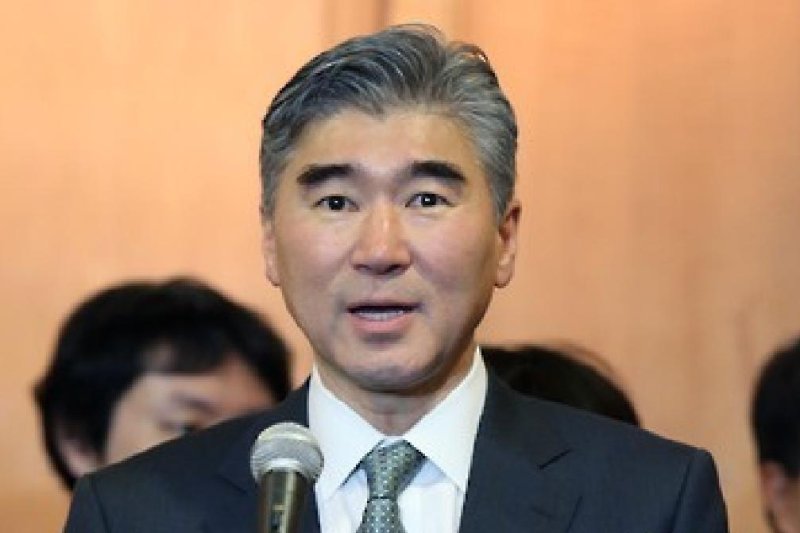Sung Kim, the U.S. Special Envoy for the Six-Party Talks, spoke to reporters in Seoul on Wednesday. Photo by Yonhap
BEIJING, May 28 (UPI) -- A Chinese foreign ministry spokeswoman dodged a question related to a U.S., South Korea and Japan-led effort to increase pressure on Pyongyang to give up nuclear weapons.
Yonhap reported Hua Chunying, a spokeswoman for Beijing's diplomatic corps, did not specifically answer a reporter's question about China's response to the plans to step up pressure on North Korea.
Hua instead told reporters Thursday, "The proper handling of the nuclear issue on the Korean peninsula serves the common interests of all relevant parties."
Hua said China as the chair country of the six-party talks is to "continue to play a role for the proper settlement" of North Korea's nuclear issue.
Her statement came a day before Hwang Joon-kook, South Korea's special representative for Korean Peninsula Peace and Security Affairs, Sung Kim, the U.S. Special Envoy for the Six-Party Talks and Junichi Ihara, director-general of the Japanese foreign ministry's Asian and Oceanian Affairs Bureau were scheduled to meet with their Chinese counterpart Wu Dawei in Beijing.
Beijing has opposed North Korea's nuclear development in the past, but the Chinese government has previously said the joint military exercises between the U.S. and South Korea only heighten North Korea's security fears.
The South Korean and U.S. representatives said they were traveling to China because China can play a uniquely constructive role in the denuclearization process.
Security on the Korean peninsula remains a pressing concern for China's defense ministry, which recently released a report that stated, "The Korean Peninsula and Northeast Asia are shrouded in instability and uncertainty."
Voice of America reported that the U.S., South Korean and Japanese envoys agreed progress meant increased pressure on North Korea. Hwang said the North's "diplomatic and economic isolation will deepen" if it remains unilaterally committed to nuclear weapons development.
On Thursday a South Korean defense ministry official said the three defense chiefs of Seoul, Washington and Tokyo are to discuss cooperation between South Korea and Japan in the case of Japan's Self-Defense Forces deployment on the Korean peninsula.
Tokyo would be required to consult with Seoul before military deployment takes place, Seoul said.















